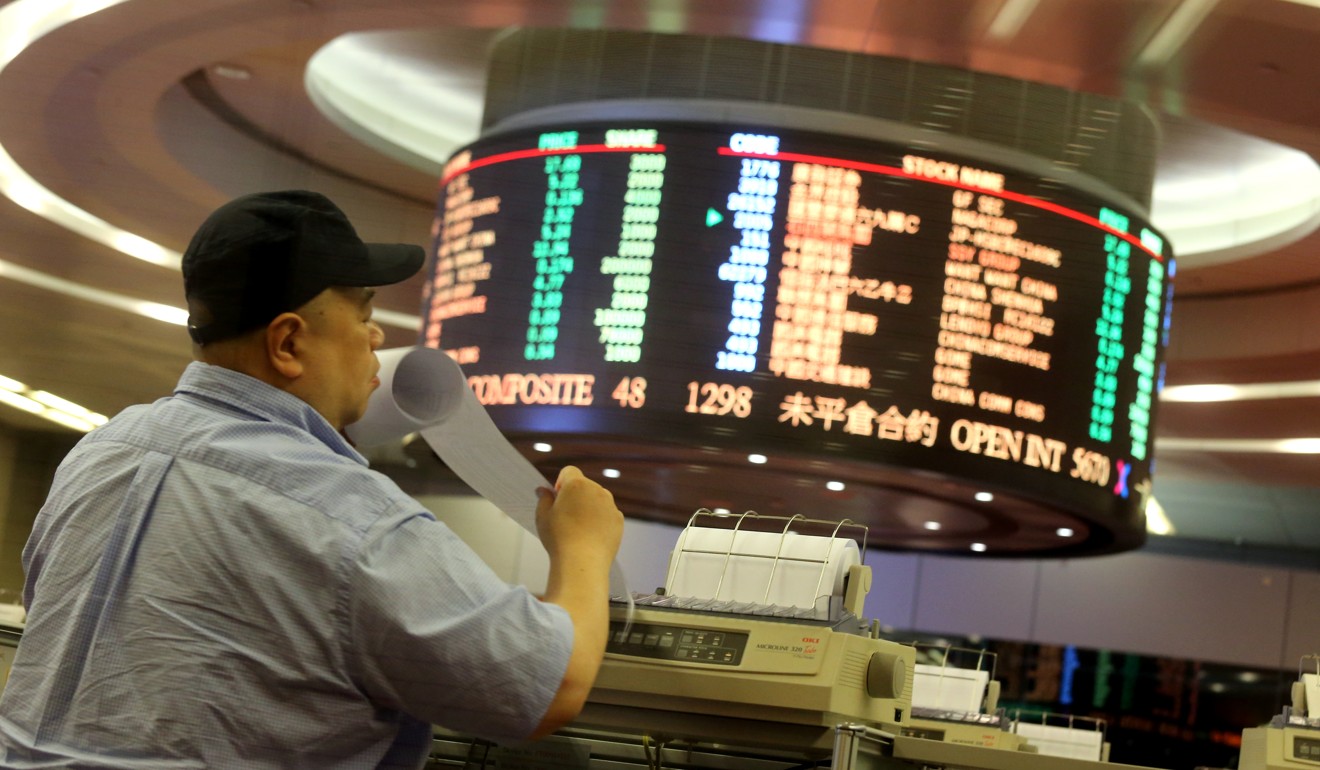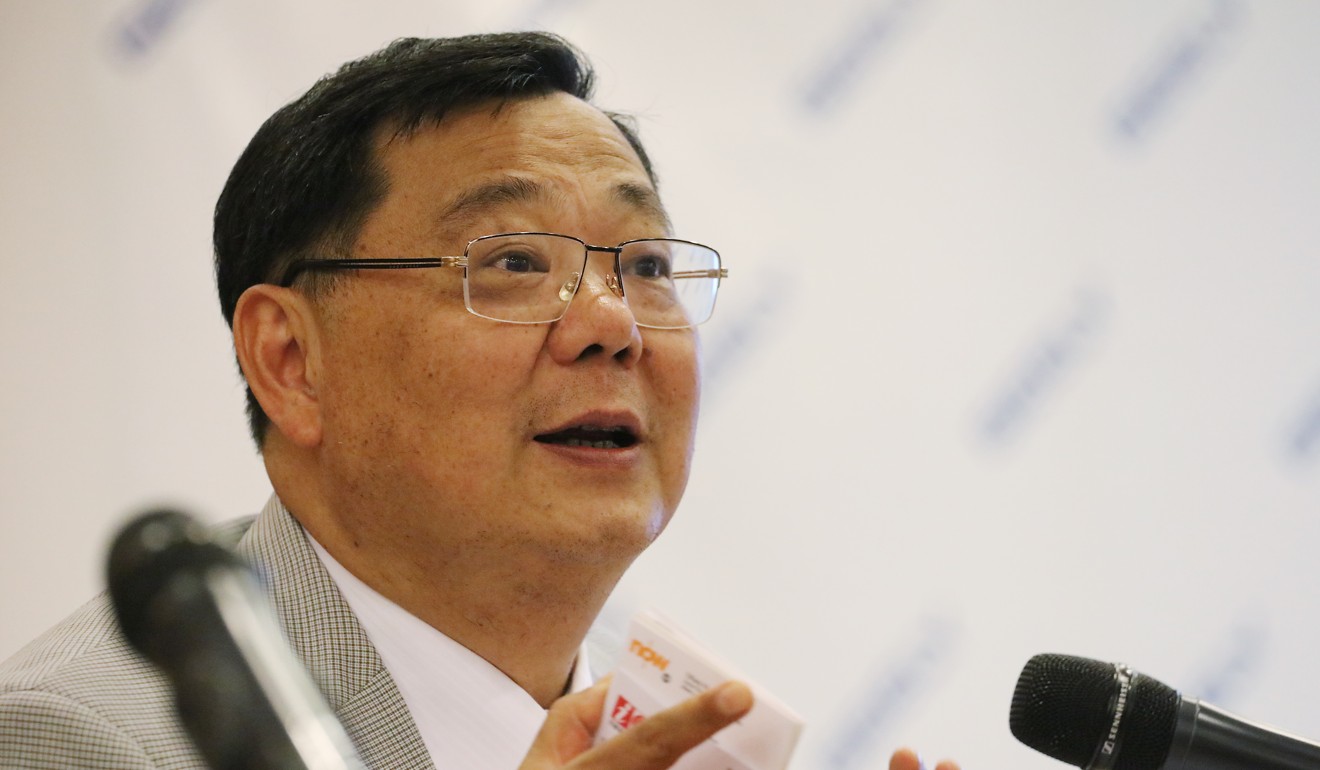
Update | Hong Kong stocks finish May 4.3 pc higher, longest monthly win streak since 2013
Shanghai Composite ends down 1.2 per cent in May, the third straight month of losses
Hong Kong stocks closed monthly trade on Wednesday with a 4.3 per cent advance for May, extending its winning streak to a fifth straight month, the longest since the start of 2013.
The Hang Seng Index finished down 0.2 per cent at 25,660.65, taking a pause after rising for seven days in a row.
For the month, the index climbed 4.3 per cent, the biggest monthly percentage gain since January.
The Hang Seng China Enterprises Index, known as the H-shares index, slipped 0.2 per cent to end at 10,602.97. The index advanced 3.8 per cent in May.
Daily turnover increased sharply to HK$110.5 billion (US$14.18 billion).
“Southbound money flows are favouring Hong Kong stocks, particularly Chinese tech, property, and financial players, as their valuations are more attractive than A-shares,” said Wei Wei, an analyst for Ping An Securities.

“Overseas funds are also flowing into the Hong Kong market, as the US dollar remains weak, while the yuan’s depreciation pressure has eased.”
On the macro economy level, investors are still fairly optimistic about China’s economic outlook, Wei said.
On Wednesday, official statistics showed the manufacturing Purchasing Managers’ Index (PMI) held steady at 51.2 in May, beating market estimates of a further decline.
“The latest official PMI readings add to broader evidence that downward pressure on [China’s economic] growth has eased lately,” said Julian Evans-Pritchard, China economist for Capital Economics.
However, he warned of risks surrounding China’s growth, as the regulatory crackdown on financial leverage could weigh on credit growth and cause a slowdown in coming months.
Among sectors, Chinese tech and property shares posted significant gains in the month.
Tencent Holdings, the internet giant operating the country’s largest social network, repeatedly hit record highs in May, thanks to stronger than expected first-quarter results and target price increases by a number of investment banks.
Tencent closed 2.6 per cent lower on Wednesday at HK$267.6, but still registered a 10 per cent gain for the month.
China Evergrande, China’s largest real estate developer by sales, retreated 8 per cent on Wednesday to HK$13.98. However, it still soared nearly 70 per cent in May.
Among other market movers on Wednesday, Geely Auto surged 7.5 per cent to close at HK$12.9, after it touched an all-time high of HK$13.12.

The Chinese car maker announced last week it had bought a 49.9 per cent stake in struggling Malaysian car manufacturer Proton, which chief executive Gui Sheng Yue said would “greatly help Geely Auto expand to markets in Southeast Asia and 2019 will see strong growth for our overseas markets”.
On the mainland, the Shanghai Composite Index ended Wednesday up by 0.2 per cent at 3,117.18. Nonetheless, it dropped 1.2 per cent in May.
The large-cap CSI finished at 3,492.88, off 0.4 per cent for the day. The Shenzhen Composite Index slipped 0.1 per cent to 1,808.3, while the startup board ChiNext index added 0.2 per cent to 1,763.73.
The China Securities Regulatory Commission said over the weekend that substantial shareholders are now barred from selling their holdings through so-called block trades, a manner that may “maliciously” cause prices to plunge and hurt public confidence.
State-run media Shanghai Securities News reported on Wednesday that the latest restrictions on major shareholders would delay the sale of over 1 trillion yuan worth of stocks. Key shareholders in many listed companies will now need to adjust their reduction plans from now until the end of 2018 in the private placement market as a result of the rule change.



